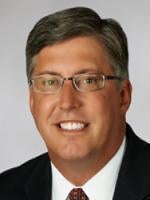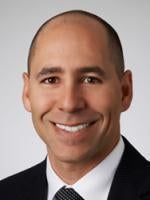As COVID-19 diagnoses surge across Michigan, the Michigan Occupational Safety and Health Administration (“MIOSHA”) announced that enforcement of Emergency Rules on COVID-19 would be expanded and that increased emphasis would be placed requiring remote-work protocols for employers.
The announcement was made November 5, following the report of 18 new outbreaks from the previous week tied to office settings. Under the MIOSHA Emergency Rules (“Emergency Rules”) – issued in October to replace portions of executive orders deemed unconstitutional by the Michigan Supreme Court – employers are required to put in place a COVID-19 Preparedness and Response Plan. Under the Emergency Rules, employers must also “[C]reate a policy prohibiting in-person work for employees to the extent that their work activities can feasibly be completed remotely.”
Deficiencies in an employer’s Preparedness and Response Plan, or failure to comply with the remote work requirements, can result in citations from MIOSHA, mandatory abatement, and a fine of up to $7,000 for serious violations.
Following the announcement, the Michigan Department of Health and Human Services issued its own Guidelines for Keeping a Safe Workplace on November 6. These guidelines, which stated that “Work should be completed remotely unless it is strictly necessary for an employee to be in person to complete their job duties” created some confusion over how strictly the MIOSHA requirement prohibiting in-person work should be interpreted. However, in line with the MIOSHA requirements, the MDHHS recommendations also state that a “strict requirement” for in-person work means that a worker is unable to physically complete required job tasks from a remote setting (e.g., like a food service or auto assembly worker, or a job involving protected data that cannot be accessed remotely). Given these two sources of authority, we believe remote work requirements should not be construed as permitting in-person work solely because working remotely may result in decreased productivity or efficiency (i.e., because an employee may be more effective in person) or because there may be additional costs related to performing work remotely (i.e., costs for equipment).
In a statement issued by MIOSHA on November 12, Director Bart Pickelman clarified the position of the Administration to be consistent with the MDHHS recommendations.
The statement reiterated that remote work protocols remain mandatory and that, “. . . all workplaces in Michigan must promote and continue remote work to the absolute maximum.” The statement also emphasized that MIOSHA will conduct inspections at workplaces with traditional office settings to review how rules are being followed and enhance compliance. While the emphasis of these programs will be to provide assistance to the employer, MIOSHA may issue citations and penalties for especially serious violations. To support these efforts, the state of Michigan has issued a set of online resources which provides employers with the guidelines they and their employees must follow and includes a sample COVID-19 preparedness and response plan and a reopening checklist to help businesses put safeguards in place.
MIOSHA has also implemented an Ambassador Program to assist employers in evaluating their workplace safety precautions. Ambassadors will not issue fines, and will utilize a 16-page Ambassador Assessment to evaluate precautions and provide recommendations.







 />i
/>i

